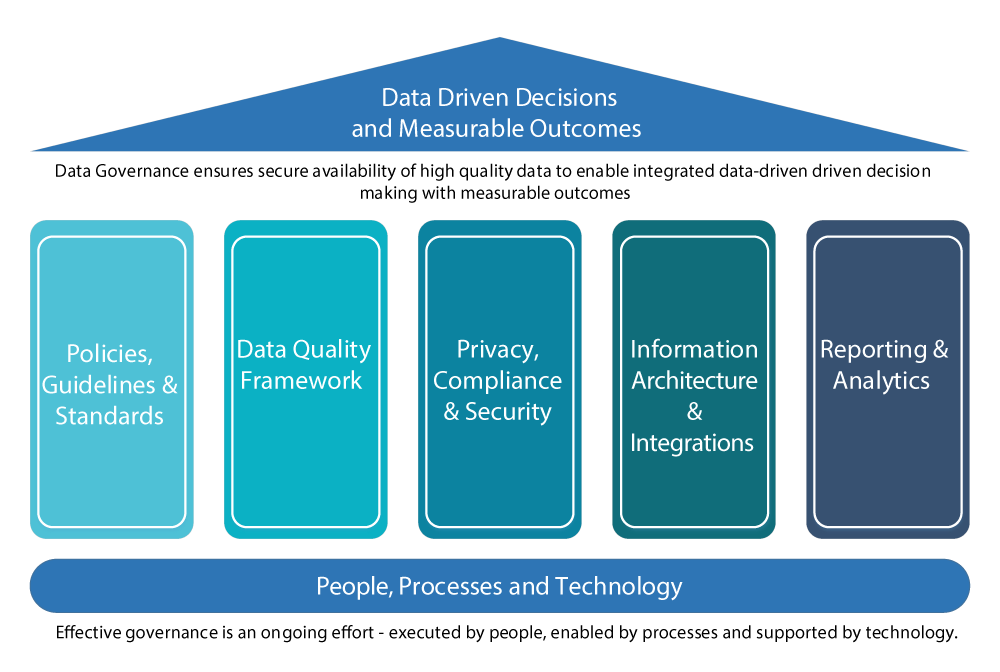In alignment with the strategic priorities of the University of British Columbia, the Data Governance Program creates the foundation to enable students, faculty and staff to make data driven decisions with measurable outcomes.
Objectives
- Develop and implement data management policies and standards that are consistently applied
- Educate the University’s community on how data enables strategic decision-making – linking data to strategic outcomes
- In partnership with Privacy and Information Security Management (PrISM), support proactive monitoring and mitigation of privacy and information security risks while facilitating data accessibility
- Develop a culture of sharing data and a common understanding of the value of data to measure progress and inform plans
- Foster automation of business processes by ensuring trustworthy and usable data is available
- Establish the foundation for an analytics program for Teaching and Learning, Research and Administration that enables data driven decision-making
- Lead the development of standard definitions needed to ensure data quality
Framework
The vision of the Data Governance Program is to deliver:
High quality and accessible data to advance UBC's purpose and vision delivered by integrated data management and principled governance.
